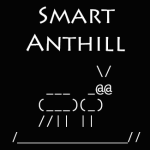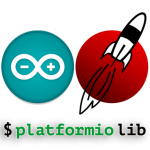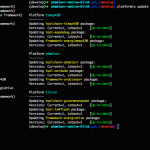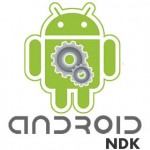
SmartAnthill is an intelligent micro-oriented networking system
My love to electronics has started from my childhood. And if you ask me about: “What was your favorite toy in childhood?”, then I answer: “Most likely it was a soldering iron”. In that time I only had a minimal basic knowledge in electronics. But to understand that a circuit is broken due to a faulty resistor or transistor was not a big problem for me.
The most interesting moment of “electronic life” started several years ago. Then I was one of those people who have made their first “electronics steps” in the “Home Automation“. The first task which had to be resolved was a “Simplified Climate Control System“. The first way to find the solution for it was using OWFS based on “1-Wire” bus . This approach was cheap and easy to use. The fundamental hardware part was built on DS18B20 (1-Wire Digital Thermometer) and DS2408 (1-Wire 8-Channel Addressable Switch) chips. At the building stage in my house I embedded a lot of digital thermometers into the floor. This allowed me to control the floor’s temperature in the different rooms (because I didn’t have the radiators for heating 😎 ). The information about temperature, the ability to control heating collector and gas boiler, the several lines of Bash / PHP code helped me to create my first working version of “Climate Control System“. With it I could:
- setup different “Climate Programs”(Day/Night, Weekend, Holiday, Guests and any others modes)
- monitor and analyze history of temperature and heating collector (excellent graphs)
- control this system from outside of my house (via Internet with mobile application)
- reduce a gas consumption in several times 😀
Continue reading →



 The
The 